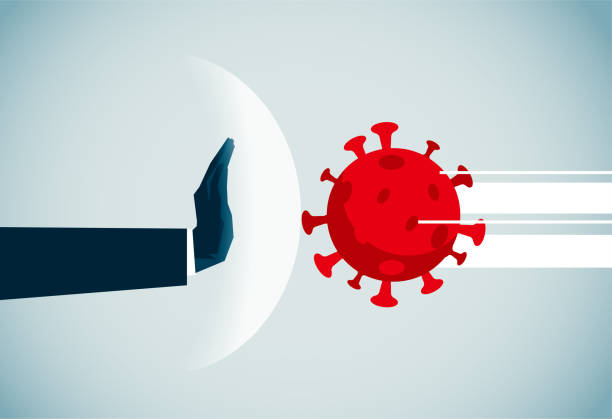Ice Cube Tray for 40Oz Tumbler, 3 Pcs Silicone Hollow Cylinder Ice Mold with Lid and Bin for Freezer, Ice Drink, Juice, Whiskey, Cocktail, Compatible with 40Oz Tumbler (Green)
$19.99 (as of April 22, 2024 18:01 GMT +00:00 - More infoProduct prices and availability are accurate as of the date/time indicated and are subject to change. Any price and availability information displayed on [relevant Amazon Site(s), as applicable] at the time of purchase will apply to the purchase of this product.)The COVID-19 pandemic was notable for the speed at which it spread, the way it caught everyone unprepared, and also the quick response by the scientific and medical community to develop vaccines and administer them.
Compelling Reasons to Undergo COVID-19 Vaccination
Protection against severe illness: According to the CDC, the vaccine is highly effective in preventing severe illness, hospitalization, and death from COVID-19.
Reduced transmission: The vaccine reduces the risk of transmission of COVID-19 from vaccinated individuals to others, helping to slow the spread of the virus.
Increased immunity: The vaccine helps the immune system produce a strong immune response to the COVID-19 virus, which can provide long-lasting protection against future infections.
Decreased risk of new variants: Vaccination can also help reduce the risk of new variants emerging by decreasing the spread of the virus.
Return to normalcy: Widespread vaccination can allow for a return to pre-pandemic activities and normalcy, including travel, social gatherings, and the reopening of businesses and schools.
Reasons for Vaccine Hesitancy
Misinformation: Misinformation and conspiracy theories circulating on social media and other platforms may lead people to believe that the vaccine is not safe or effective.
Lack of trust: Some people may not trust the government, pharmaceutical companies, or healthcare providers due to past experiences of discrimination or mistreatment.
Fear of side effects: Many people may be concerned about the potential side effects of the vaccine, even though the vast majority of people experience only mild side effects.
Access issues: Some people may have difficulty accessing the vaccine due to a lack of transportation, work schedule conflicts, or limited availability in their area.
Cultural and religious beliefs: Cultural or religious beliefs may discourage individuals from taking vaccines or other medical interventions.
Incentives to Consider for Encouraging People to Vaccinate Themselves
Financial incentives: Offer a cash bonus, gift card, or discount to people to get vaccinated. Behavioral and human resource experts say it could be especially effective for those who are hesitant due to the cost of the vaccine or the financial burden of taking time off work.
Access incentives: Provide priority access to certain activities or services such as travel, events, or indoor dining for vaccinated persons. It can help people feel like they are getting a tangible benefit from getting vaccinated.
Health incentives: Promote the health benefits of vaccines, such as reduced hospitalization risk and death and increased protection for vulnerable populations.
Education and awareness incentives: Launch educational campaigns and provide accurate information to dispel myths and misinformation about the vaccine. Encourage people to become ambassadors for the vaccine by sharing their own positive experiences and encouraging friends and family to get vaccinated.
Community incentives: Emphasize the role vaccines can play in protecting our communities and loved ones. Highlight the positive impact that widespread vaccination can have on businesses, schools, and other community institutions.
Conclusion
One of the most effective to protect yourself, your loved ones, and your community from COVID-19 is to take vaccines. However, since there may be several reasons for people to hesitate to take vaccines, it is important to address their concerns to increase vaccine uptake and help end the pandemic.



